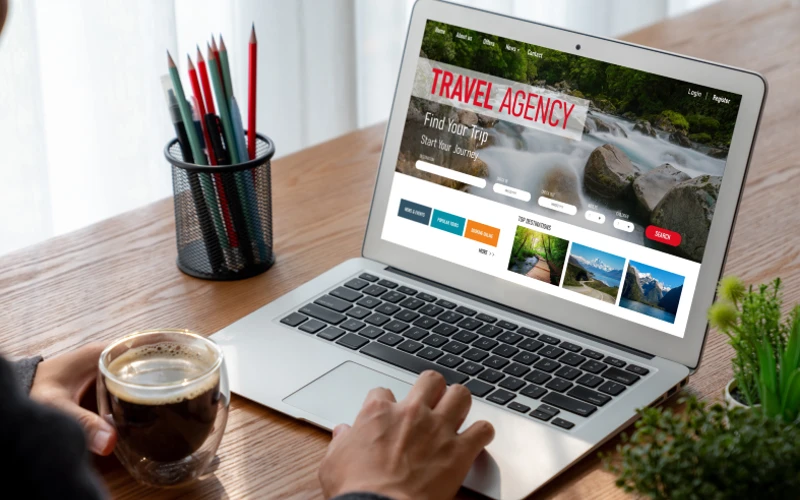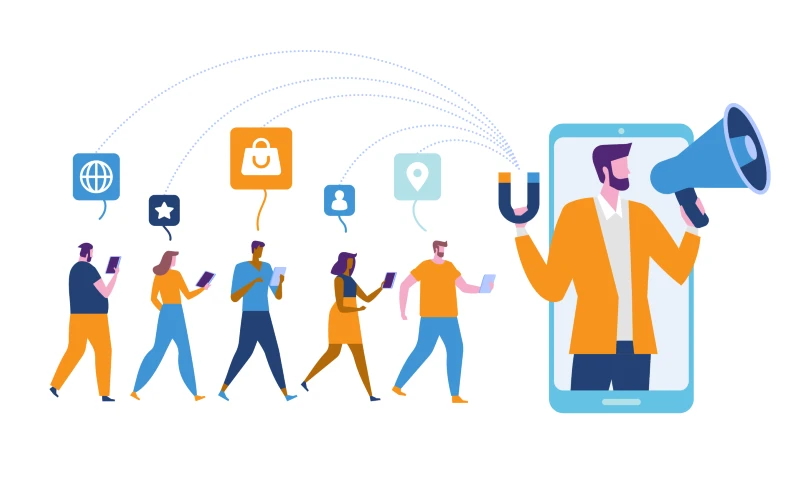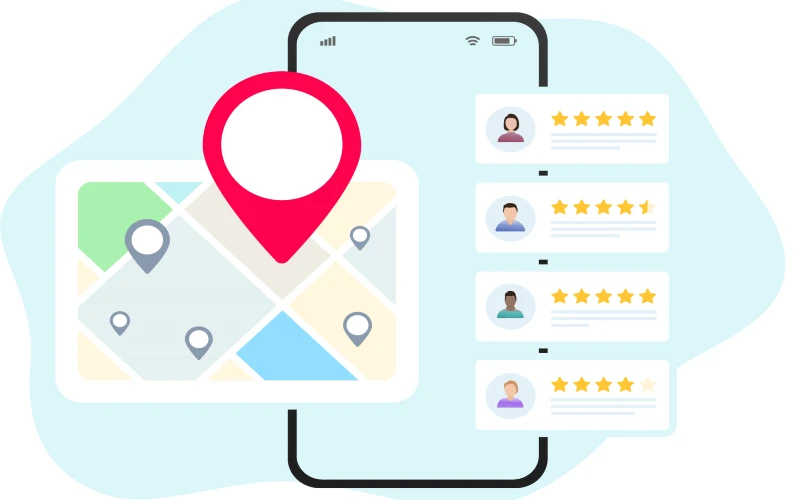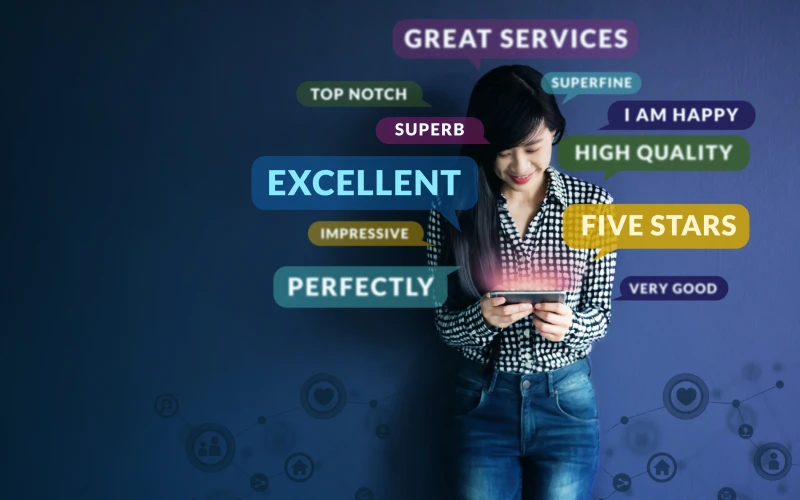In 2025, the question is not whether to invest in digital marketing, but how to do it effectively.
As your travelers are digitally connected, digital marketing has become the primary avenue to reach customers.
A prime example of this is Nova Scotia’s ‘Stay Longer’ digital marketing campaign, which stands as a testament to the power of digital marketing in creating meaningful connections with audiences and promoting unique experiences.
This leaves no room for doubt about the necessity of digital marketing in the travel and tourism business.
As the digital world is ever-evolving, strategies that worked yesterday may be outdated today.
With this in mind, this article will guide you through the top 21 digital marketing strategies that are poised to make a significant impact in the travel industry this year.
Top 21 Digital Marketing Strategies for Travel Agencies
Digital marketing strategies for travel agencies must be current and innovative.
Every potential traveler enjoys staying updated with the latest gadgets and technologies.
Therefore, relying on outdated strategies may result in missed opportunities to connect with them.

Let us explore the top 21 digital marketing strategies for 2025 below:-
1. Develop a user-friendly website
A user-friendly website is an essential part of a digital marketing strategy for travel brands in 2025.
Having a good mobile-friendly website helps in many ways.
The website for a travel brand should have an easy-to-use layout that makes choosing and booking trips simple.
Along with appealing destination images, website visitors can be welcomed with other useful information like trip guides, travel advice, and so on.
It is also good to provide travelers with a chance to share their experiences via social media channels that are part of the website.
If the website suggests customized itineraries based on the data received from the website, customers are enticed to explore more.
2. Use server-side tracking
As privacy concerns shape the digital landscape, Server-Side Tracking ensures enhanced security and privacy compliance by shifting data processing from browsers to servers.
This not only safeguards user privacy but also provides more accurate insights into their behaviors.
It sets the stage for a more secure and informed marketing approach.
It’s a pivotal step to adapt to evolving privacy regulations and diminish the reliance on third-party cookies.
This fosters better relationships with your audience through responsible data management.
3. Mobile optimization
A large portion of tourists today utilize mobile devices for trip planning and booking, thus mobile optimisation is an essential component of any digital marketing plan.
As search engines like Google favor mobile-friendly websites, a site that is optimized for mobile devices not only enhances user experience but also helps with search engine rankings.
4. Create high-quality content
Crafting compelling and informative content is crucial for travel agencies to attract their audience.
By providing valuable insights into destinations, travel tips, and unique experiences, agencies establish themselves as authoritative voices in the industry.
Quality content contributes to enhanced search engine visibility, creating a narrative that entices potential travelers.
Shareable blog posts, visually appealing multimedia, and engaging social media content foster connections and attract organic traffic.
This strategy not only boosts the agency’s reputation but also cultivates customer trust and loyalty in the competitive digital landscape.
Creating quality content is the key to standing out and making a lasting impact in the travel sector.
5. Email marketing

In 2025, sending tailored emails to subscribers is a key component of email marketing for travel brands.
These emails frequently include bargains, travel advice, and information about popular destinations.
The secret is to send different postcards to different people.
You group the items on your list according to what the travelers enjoy.
Beach lovers receive beach-themed emails, and mountain fans receive snow-themed updates.
These emails heavily rely on visual components, such as eye-catching graphics and tailored recommendations.
Metrics like open rates and click-through rates are used to understand the effectiveness of e-mail marketing.
6. Social media marketing
Social media marketing can help travel companies in a variety of ways.
For example, social media sites like Instagram display breathtaking images of distinctive lodgings and entice tourists to visit new places.
Also, specialized Facebook advertisements make sure the right people see their services.
Paid promotions on social media not only bring in more visitors but also aim at the right audience.
Quick updates, engaging content, and happy customer stories create a direct connection, building trust with potential travelers.
Using the active nature of social media, travel agencies can stay in the spotlight.
They can use it as a strong tool for advertising, connecting with customers, and building loyalty in the competitive travel industry.
7. Paid advertising campaigns
Along with organic traffic, travel businesses should also invest money in paid advertising campaigns in 2025.
This pushes their website into a prominent position in the paid search results, helping travelers find them quite easily.
To retarget potential clients who have already visited their website, they should also run display ads on a variety of websites.
Using platforms like Google Ads and Facebook Ads, agencies can accurately reach the people they want.
Well-made ads with catchy words and appealing pictures don’t just make more people know about the brand but also bring in measurable results.
8. Influencer marketing

Influencer marketing is the trending marketing strategy of 2025.
The technique is quite simple, a travel brand teams up with an influencer with a large social media presence.
This influencer in turn creates engaging content showcasing the agency’s premium packages, staying at luxurious resorts, and experiencing exclusive activities.
The followers are easily enticed to book their trips through the travel agency.
9. Video marketing
Videos provide a dynamic medium to convey the fun of travel.
Things like live streams and behind-the-scenes footage can foster real-time connections with potential travelers.
Therefore, all travel agencies should consider adopting a video marketing strategy in 2025.
This can help them effectively showcase their destinations and services, as demonstrated by Airbnb’s “Live There” campaign.
In this campaign, local hosts crafted short videos sharing their experiences in various locations, establishing a heartfelt connection with the audience.
This emotional engagement inspired viewers to explore vacations with Airbnb.
Platforms like YouTube, Instagram, and TikTok serve as excellent avenues for sharing immersive travel stories, ranging from virtual tours to destination highlights.
10. App marketing
In 2025, it’s crucial for travel agencies to create a user-friendly app, considering everyone’s on their phones.
Promoting the app through email campaigns, social media, and teaming up with travel influencers is essential.
Offering special discounts or in-app perks can motivate users to download and use it.
To maintain a positive app reputation, regular updates, good user feedback, and helpful customer service are necessary.
Agencies can use push notifications to share exclusive deals and updates directly with users.
The app becomes a convenient solution for managing itineraries, booking services, and accessing real-time travel info.
Exclusive app promotions boost downloads and repeat usage, while integrated loyalty programs and personalized suggestions not only build brand loyalty but also provide valuable insights for refining services.
11. Virtual reality (VR) and Augmented reality (AR)
Imagine giving visitors the option to virtually explore hotels or destinations before making a reservation, all from the comfort of their homes.
Marriott Hotels is a noteworthy example of a company that has adopted this digital marketing strategy.
The “VRoom Service,” introduced by Marriott Hotels, allows visitors to order VR headsets for their rooms.
These headsets allowed visitors to take virtual tours of numerous travel locations, which ultimately piqued their interest in making new travel arrangements.
Along with raising brand engagement, this immersive experience also enhanced reservations and consumer happiness.
Similar to other industries, travel companies can use VR and AR to offer immersive previews of their products, letting clients “try before they buy” increasing their excitement and knowledge of their travel choices.
12. Geo-targeted SEO

Geo-targeted SEO is a strategic method that focuses on targeting audiences, enabling travel businesses to engage with travelers who are actively searching in specific geographical areas, thus boosting the chances of conversions.
In the competitive world of travel, SEO not only helps maintain competitiveness but also ensures efforts are directed towards the right audience.
The use of geo landing pages, local SEO optimization, and the creation of localized landing pages all contribute to increased visibility, improved user experience, and higher traffic for travel businesses.
From keeping Google Business Profiles updated to managing online reputation, every aspect of local SEO services enhances the broader Geo-targeted SEO strategy, ensuring that travel brands excel and prosper in the digital world.
13. Retargeting and remarketing
Retargeting and remarketing are essential digital marketing techniques in 2025.
They entail showing customised advertisements to visitors who have browsed the agency’s website or connected with their content in the past but haven’t made a reservation.
For instance, if a user looks up flights to Paris but leaves without booking any tickets, the algorithm will track the user and remind them of tempting offers on flights or hotel bookings in Paris.
This retargeting or remarketing technique maintains the agency’s name in the consumer’s mind.
14. Social media utilization
Social media platforms, with their vast user bases and visual appeal, offer effective ways to reach and engage potential travellers.
They provide targeted advertising, influencer collaborations, e-commerce integration, and analytics tools, all of which offer additional benefits to travel agencies.
Being present on these platforms ensures brand visibility, builds trust, and allows for adaptability to evolving consumer trends, making it a crucial strategy for success in the competitive travel industry.
In addition to their core features, these platforms often introduce new initiatives that can benefit businesses in the travel sector.
For instance, in 2022, Meta launched the #ReelAdventures campaign to promote the use of Facebook and Instagram Reels for sharing travel experiences in Kenya.
This campaign was a huge hit among travel enthusiasts.
In 2025, travel agencies can tap into such campaigns or create similar ones to engage with their audience and promote their offerings in a more interactive and personal way.
15. Chatbots and live chat

Leveraging tools like chatbots and live chat can significantly enhance a travel agency’s ability to respond swiftly to customer inquiries.
A chatbot can provide instant information on various locations or packages, addressing traveler inquiries promptly and efficiently.
This immediate response system can greatly improve customer satisfaction.
On the other hand, live chat offers a more personalized touch.
A live chat representative can provide tailored recommendations based on the specific needs and preferences of the traveler, significantly enhancing their journey and making them feel valued and understood.
16. Social media contests and giveaways
To boost their online presence, travel agencies can run fun contests on Instagram, Facebook, or Twitter.
By giving away cool travel prizes, they get people excited and motivated to share with friends.
This not only spreads the word but also creates a sense of community and loyalty.
Social media contests are a great way for agencies to connect with users, making them more aware of the brand.
These contests create buzz and draw in potential travelers who want to explore what the agency has in store.
17. Google my business
Google My Business (GMB) is a vital tool for businesses, providing essential details like contact information and operating hours, and ensuring visibility in local search results.
In 2025, its significance is further amplified as travelers increasingly rely on GMB listings for swift decisions.
To get new clients, travel agencies should enhance their GMB profiles with compelling descriptions and top-notch photos.
Leveraging features like posts and Q&A allows direct engagement with potential travelers, while positive reviews and high ratings build trust, influencing decision-making.
With mobile users heavily dependent on local searches, an optimized GMB profile becomes indispensable for travel agencies vying for attention in the local market.
18. Online reviews and testimonials

Positive reviews and genuine testimonials prominently showcased on platforms like TripAdvisor or Yelp, wield significant influence over prospective travelers’ choices.
Responsively engaging with both positive and negative reviews demonstrates a commitment to customer satisfaction.
Transparency and honesty in addressing feedback are paramount.
Incorporating these reviews into social media, and the agency’s website enhances their reach, crafting a compelling narrative that resonates with a wider audience.
This strategic integration not only boosts bookings but also fosters brand loyalty as travelers are drawn to the authentic experiences shared by others, creating a positive and trustworthy image for the agency.
19. Get involved in social media travel groups
In 2024, engaging in travel-centric social media groups proves to be a good strategy.
Take Expedia’s Viewfinder Community, a blog where travel enthusiasts and professionals exchange stories and recommendations.
By actively participating in social media groups and forums, like those on Facebook and Instagram, agencies can forge direct connections with passionate travelers.
Expedia, for instance, not only shares insights but also actively engages in discussions, gaining valuable insights into the preferences and trends of its audience.
This approach fosters close relationships, positioning agencies to better understand and cater to the ever-evolving tastes of travelers.
20. Personalize your marketing
Personalization gives the digital world a human touch by doing everything from recommending places based on previous searches to addressing consumers by name.
It involves anticipating visitors’ requirements, providing them with special offers, and interacting with them.
Through dynamic content, location-based offers, and customized recommendations, every traveler feels like their journey is going to be unique.
21. Digital business cards
A digital business card (DBC) is a modern, virtual version of the traditional visiting card, offering more than just contact details.
It’s becoming a powerful digital marketing tool today, making paper cards obsolete.
In real estate, for example, agents use digital business cards to showcase properties with virtual tours and detailed listings, boosting engagement and helping clients make quicker decisions.
Similarly, healthcare clinics leverage DBCs with booking links and resources, streamlining interactions and reducing no-shows.
For a travel agency, digital business cards are a total game-changer.
Imagine this:
A client scans your card and instantly steps into a 360-degree virtual tour of a tropical beach, a luxury hotel suite, or a thrilling safari.
They’re greeted with stunning photos and videos of your best travel packages, so vivid they can almost feel the sand between their toes.
They can click through an interactive map, checking out hotspots and must-see attractions for their dream destination.
They even hear from other travelers, thanks to video testimonials that share real experiences and build trust.
And when they’re ready to book? A simple tap takes them straight to your booking page.
By using QR codes and NFC technology, DBCs make it easy to connect with customers.
Their digital format provides valuable data, allowing agencies to track customer journeys, analyze engagement, and improve their marketing strategies.
This data-driven approach leads to higher conversion rates and builds deeper relationships with potential travelers.
Conclusion
The future of travel is digital, and these 21 strategies provide a roadmap for travel agencies to successfully navigate their digital marketing journey.
A key takeaway for businesses in the travel and tourism sector is the importance of aligning their marketing efforts with special occasions, such as popular festivals or cultural holidays.
Such targeted marketing campaigns, offering special deals and packages, can have a significant impact.
They generate travel interest in the minds of people and lead to increased bookings.
The ROI of digital marketing campaigns can be higher.
Another important strategy is teaming up with other businesses like hotels and airlines.
This can be a big advantage.
TripAdvisor, a well-known travel review and booking site, showcases partnerships with restaurants, museums, and attractions worldwide.
These businesses can manage their TripAdvisor profiles, interact with customers by responding to reviews, updating info, and offering exclusive deals.
Such collaborations can enhance the customer experience and boost business growth.
Global Media Insight is a pioneer in the field of digital marketing with over 24 years of experience. We offer web design and website development along with SEO services for travel and tourism, real estate, ecommerce and other major industries. Our team prioritizes customer engagement through innovative marketing approaches. We can make your travel business better for visitors and help you succeed in the tough digital landscape of 2025! Contact us today!

GMI’s Research Team is a panel of knowledgeable experts from various fields such as digital marketing, social media, and web development, all united by a common goal—to educate. We enjoy exploring everything from the latest industry trends and emerging technologies to people and demographics, both in the UAE and beyond. Through our blog posts, we share valuable insights that help businesses and marketers stay informed and prepared for the challenges and opportunities that lie ahead.









